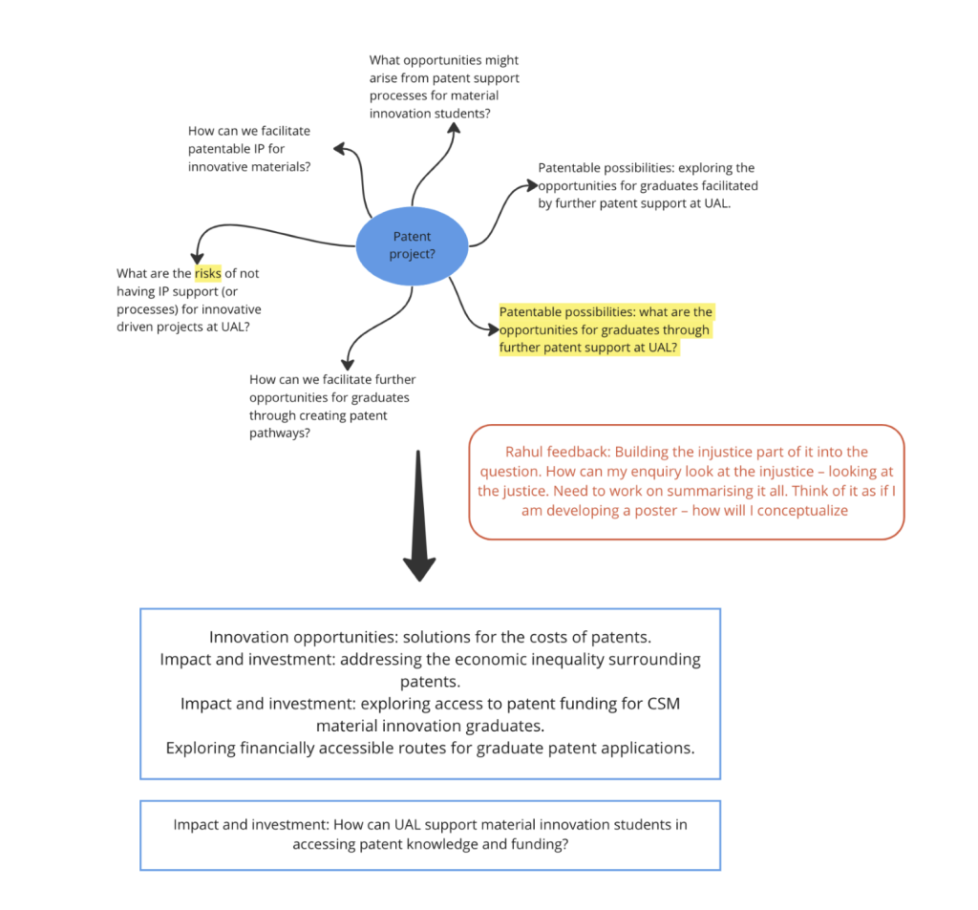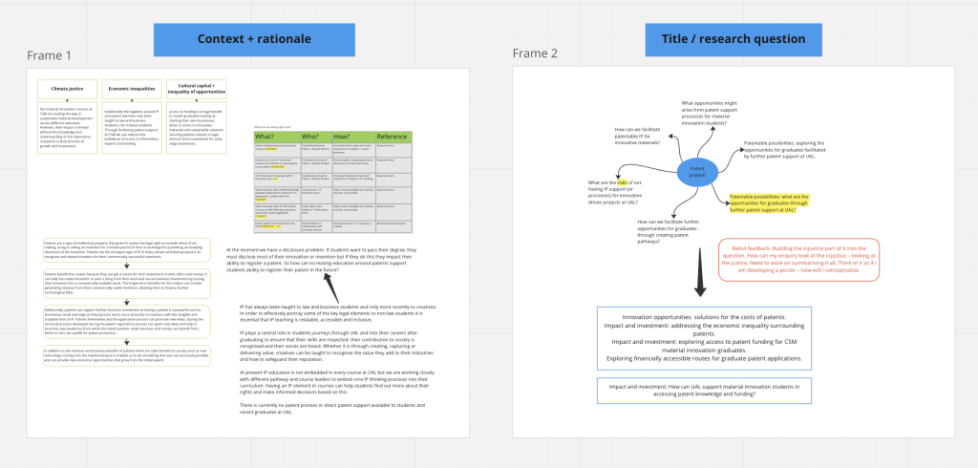I began the search for a topic with a few simple brainstorming sessions to reflect on the work that I have done in my two roles at UAL (role 1 in the IP Education team and role 2 as a lecturer at LCF within the Fashion Business School). My search started by thinking about a current issue that I am facing in my IP role within Careers and Employability which surrounded the lack of patent support available to students at UAL. I began by creating a table to outline what current support is available for students (Figure 1) then moved on to exploring how I might frame an action research project on this topic (Figure 2).
After the first workshop session of the term facilitated by Rahul and Santanu the main feedback that I received from the tutors and my peers was to ensure that the project was rooted in a social justice issue. Following that workshop, I developed the following:
| Climate justice | Economic inequalities | Inequality of opportunities |
| The material innovation courses at CSM are leading the way in sustainable material development across different industries. However, their impact is limited without the knowledge and understanding of the importance of patents in their process of growth and investment. | Traditionally the legalities around IP and patent law have only been taught to law and business students, not creative students. Through furthering patent support at CSM we can redress this imbalance of access to information, experts and funding. | Access to funding is a huge benefit to recent graduates looking at starting their own businesses, when it comes to innovative materials and sustainable solutions securing patents unlocks a huge amount more investment for early-stage businesses. |
However, following a further tutorial with Rahul I decided to move away from this topic due to difficulties rooting it in a clear social justice issue. I came up with the idea of looking again at a significant issue within both my roles I undertake at UAL which is Sponsored Student Projects.
This was a topic that could bring together my two roles at UAL. I first considered the issues surrounding Sponsored Student Projects (SSPs) at an LCF Fashion Business School Away Day in early September 2022. A group of staff members shared their experiences of working on an exciting life brief with Flying Tiger Copenhagen and this was used as a case study to present changes to organising SSPs at LCF. September marked a change in organisation and management of SSPs following a UAL-wide review the following year. The Business and Innovation team (B&I) took over management of all LCF SSPs.
When I was sitting in the Away Day workshop session, I learned that each student was paid only £500 for the designs that they had created for the project, and I couldn’t help but feel like this was an unfairly low sum for the work involved. The students designed the costumes and theme for the collection and there is more information about the collaboration here: https://flyingtiger.com/it/pages/london-college-of-fashion-collab.
I discussed the new project idea at the next tutorial with Rahul and I decided to stick with this concept and get going on the development. I went back to my reading especially so to McAteer (2013) and reviewed the case study example used in Chapter 3: Getting Started on an Action Research Project which I felt was a similar instance to my experience in changing topic. Even in these early stages I was getting used to a different way of researching away from my more natural ‘scientific’ approach and was reassured by Cook’s (2009) ‘The purpose of mess in action research’ discussing mess as a means to ‘turning towards new constructions of knowing that lead to transformation in practice’.


Reference list:
- Cook, T. (2009) ‘The purpose of mess in action research: building rigour though a messy turn’, Educational Action Research, 17:2, pp. 277-291. http://dx.doi.org/10.1080/09650790902914241.
- McAteer, M (2013) Action Research in Education. London: Sage.

